|
Growing up in a fairly large extended Catholic family, I remember the Thanksgivings of my childhood always including long, loud dinners, preceded by seemingly longer prayers of grace before the big meal. As children, we were encouraged (or, really, required) to go around the table and each name one thing we were most thankful for. It could be something small or large, momentous or enduring, as long as it was something we were truly grateful to have in our lives. My parents, aunts, and uncles were naturally trying to make sure we didn’t take for granted the food on the table, let alone all the other blessings in our young lives. There were plenty of years when, fancying myself the dutiful elder of two children, I’d spend the week or so leading up to the holiday concocting the best possible thing to say I was thankful for, lest my younger sister or one of my cousins come up with something better. And then there were the years when I completely forgot to prepare, only to halfheartedly come up with something on the spot when my turn came. While the former may have boosted my ego, the latter made up for it by knocking me down a peg. I’d often think to myself, “Could I really be so ungrateful that that’s all I could come up with?” As we hear in today’s Gospel reading, one of the ten lepers, “realizing he had been healed, returned, glorifying God in a loud voice.” Jesus commended the Samaritan man’s gratitude, telling him, “your faith has saved you.” Don’t we all prefer to think of ourselves as that dutiful, humble foreigner, rather than counting ourselves among the nine ungrateful ones who couldn’t be bothered to thank Jesus? And yet, how quick we are to forget the truth that we are, in fact, abundantly blessed by God. I’ve always found this story to have two key points. First, we are better able to receive God’s blessings and grace when we are grateful: “your faith has saved you.” The second is a bit more hidden, though. Note how Luke mentions that, “one of them, realizing he had been healed, returned” to thank Jesus. It’s not necessarily true that the other nine were just a bunch of ingrates. Rather, they were doing what Christ had instructed them to do. They obeyed in an act of faith, and in so doing, were healed along the way. While they were healed physically, however, the leper who returns is also healed spiritually: he is saved. How often do we forget, in the midst of the stresses and struggles of life, that we’ve each been blessed by God? It’s not a matter of remembering to thank Him for the big things; those parts of life are the easiest to be grateful for. It’s the small things, the things we take for granted, that we ought to try the hardest to be thankful for. Not only will that reflection make us more appreciative of our blessings themselves, it will remind us even more deeply that all of life’s blessings are gifts from God. Question for Reflection: What are some things you are grateful for this year?
0 Comments
“Good morning and welcome to St. Michael Catholic church. Before Mass begins, we invite you to take a moment to greet those around you.”
I was on vacation at the time I heard these words, and thus totally unfamiliar with the parish until I had searched for local Catholic churches. There wasn’t much choice compared to my options in a densely populated city, but I knew Mass was Mass—the same and just as important in the rural diocese I was visiting as it is in the Archdiocese of Washington (and the rest of the Universal Church). I was excited to experience another faith community as a visitor. After the cantor made the welcome announcement, the parishioners around me turned and exchanged greetings with their neighbors. While there were a number of familiar faces for them, mine was new. Their eyes lit up when they saw me. I appreciated the parishioner’s hospitality efforts, beginning with the first handshake and smile. As Mass began, I could not help but pick up on the small differences in the celebration of the liturgy: the church was smaller and rounder, there was a piano instead of an organ, the servers were past middle-age, and the priest liked to stroll up and down the aisle during his homily. While it was not exactly what I was used to, the actual worship of God and the spiritual nourishment of the faithful was no less authentic or beneficial. The Word of God was proclaimed in the readings and we received the real Body, Blood, Soul, and Divinity of our Lord Jesus Christ in the Eucharist. We sang hymns, exchanged a sign of peace, and participated in the usual liturgical responses, movements, and postures at the appropriate times. These experiences may very well be shared by anyone taking a vacation this summer or otherwise visiting another parish. The Mass transcends one’s location or liturgical preferences. It is ultimately the gathering and lifting of prayers of praise, petition, repentance, and thanksgiving to God Who blesses us with His grace and True Presence. In Her wisdom, the Church has laid down guidelines for the celebration of the liturgy that must be adhered to in order to be valid. Without them, the Mass would lose its focus on divine worship and partaking in the Sacred Mysteries. While different parishes and cultures may imbue a different spiritual character in the celebration of the sacraments, the Substance (God) remains the same to unite all the faithful, whoever and wherever they may be. This universality reflects that of the Church, instituted to proclaim Christ to all, especially those outside of His Body. My experience of welcome at this new church during my vacation reflected that very evangelical mission! One does not have to go far to invite another to share in the Sacred Mysteries—all are invited to enter and re-enter the liturgy, and to do so more deeply than before in order to draw more meaning and grace along one’s spiritual journey. After that morning’s Mass, the church hosted a hospitality breakfast during which I was continually greeted by other parishioners who expressed amazement that I found my way to join them in the Eucharist at such an early hour—and on a weekday! To some, it was refreshing to see not only a new face, but a young one. They were as happy to greet me and share their experiences as I was to be there and form new ones. Before leaving that church to continue on with the day, the members of the faithful drew strength from their reception of Jesus in the Eucharist and from each other in order to sustain them through the burdens and challenges of their lives. In welcoming newcomers to the Catholic Church, let us strive to extend the same heartfelt message as our Lord to the wearied disciples after His Passion: “Peace be with you!” Doing so will not only help others benefit from the graces and support offered at your home parish, but will also strengthen and enrich the life of the local church as it endeavors to minister to the world spreading the Gospel message. Question for Reflection: How does visiting different parishes deepen your understanding of the Mass? Have you ever benefitted from attending Mass in a different location or within a different culture? Smart and good looking, “Norbert’s eyes and ears were open only for things of the world,” as one biographer put it. That ended one summer day when a sudden storm dropped a lightning bolt at the feet of the horse Norbert was riding. The lightning scorched the grass and spooked his horse, throwing the young German nobleman to the ground. Waking up an hour later, Norbert felt the emptiness of his life flash before his eyes. Norbert said, “Lord, what would you have me do?” The answer he heard was, “Turn from evil and do good; seek after peace, and pursue it (Ps 34:14).” Norbert traded his velvet overcoat for a hair shirt—and a saint was in the making. Norbert went on to become Archbishop of Magdeburg (Germany) and founder of the Order of Praemonstratensians (named for Prémontré, France)—also called Norbertines. Norbert is known as the Apostle of the Blessed Sacrament and is often portrayed holding a ciborium. This portrayal is fitting because Norbert spent his life promoting devotion to the Real Presence of Jesus in the Eucharist during an age in which this truth was challenged. It’s also fitting because Norbert became what all Christians are called to be—a living ciborium in whom Jesus has increased while we have decreased (cf John 3:30). As we anticipate next week’s Feast of Corpus Christi, we look to Norbert as an example of what a Eucharistic life looks like. Norbert modeled the Eucharistic Jesus in four powerful ways. The Eucharistic Jesus is Hidden Jesus hides himself as a little piece of bread in the Eucharist. Following a vision of the Blessed Virgin, Norbert built his first monastery in what one historian called “the desert of Prémontré,” north of Paris. Everyone thought he was foolish to found the Order in such a remote, hidden, and barren place, but he trusted that it would, in God’s time, bear abundant fruit for the Kingdom. The Eucharistic Jesus is Humble After his election as Archbishop, Norbert made his way in penitential attire to the Episcopal Palace, where the porter rudely shut the door in his face, thinking he was a tramp. When the porter realized his mistake, Norbert only smiled and said, “Fear not, my good man, for you know me better than all those who have raised me to this high dignity.” The Eucharistic Jesus is Vulnerable to Misunderstanding Norbert was fearless in speaking truth in an era of laxity. Shortly after his conversion, he told his confreres in the monastery in what ways they were not living up to the holiness of their calling. He converted some and, not surprisingly, was attacked by many. When he was Archbishop, a resentful mob even threatened to kill him. “Calumny,” Norbert told his followers, “is the test of a patient and generous heart, which bears with it rather than to give up working for God.” The Eucharistic Jesus Gives Himself to be Consumed by Those He Loves Norbert’s perseverance in self-giving is legendary. He walked barefoot in the winter from Germany to France (where he received a mission to preach from Pope Gelasius himself), never taking food until evening except on Sundays and never going anywhere except to preach conversion of heart and reform of morals. At the end of his life, he was in extreme pain and emaciated from fasting and fever, having spent himself for the glory of God and the good of souls. Still, he roused himself to celebrate Easter Mass, the last of his life. Eucharist means “thanksgiving.” St. Norbert’s life was a thanksgiving for God’s stunning mercy in having saved him from the hell-bound path of his youth. He reminds us to remain grateful for God’s mercy so we become ever more inspired to pour ourselves out in imitation of the Eucharistic Jesus. St. Norbert, pray for us! As we brought our firstborn son in a white gown to the church, I couldn’t help but think of Mary and Joseph - new parents who also came to God’s dwelling place with a newborn child. They were fulfilling the stipulations of the Mosaic law: Mary was completing her ritual purification after childbirth, and the couple was consecrating their firstborn son to God (cf Exodus 13:2). They, like my husband and I, were entrusting their child to God in faith, giving the Lord control over his destiny, reiterating, in a sense, Mary’s surrender in her Magnificat, “may it be done to him according to your word.”
The Feast of the Presentation of the Lord which we celebrate today is one of both great joy and great sorrow—a day of paradox. The glory of the Lord in a literal sense returns to the Temple in Jerusalem which had for so many years been vacant of his physical presence. God has come to renew his covenant and relationship with his people. His presence, however, is no longer confined to this Temple. He walks now among his people…as one of them – in this case, in the form of a child. All of Israel’s hopes are fulfilled in this one child. “My eyes have seen your salvation,” the holy Simeon proclaims in the Temple, “a light for revelation to the Gentiles, and glory for your people Israel.” The Jewish people’s spiritual exile from God has come to an end. This child, this sign of hope and restoration of Israel, however, is also a sign to be misunderstood and rejected. Simeon continues, explicitly telling Mary, "Behold, this child is destined for the fall and rise of many in Israel, and to be a sign that will be contradicted and you yourself a sword will pierce.” God was answering the many prayers and dreams of the Israelites in a way they could hardly comprehend: in the form of a lowly child who would grow up in a foreign country, who would come back to Nazareth and live as a poor carpenter’s son, who would grow to become a great prophet after thirty years and challenge the Jewish people to live more nobly than they could have ever imagined: to love their enemies and persecutors, to eat his Body and drink his Blood, to become sons and daughters of God, calling him “abba,” Father, and ultimately to attain salvation for the entire world. God often answers our prayer in ways unimagined or seemingly incomprehensible to us. Will we join in Simeon’s proclamation of salvation or will we be among those who reject this sign? “My eyes have seen your salvation” - this is at the heart of the Christian life. This is evangelization: an encounter with the living God that results in our conversion and proclamation of salvation. As Pope Francis said in last year’s homily on the Feast of the Presentation, “One who lives this encounter becomes a witness and makes possible the encounter for others.” After encountering Christ, we are able to reiterate the words of Simeon, “My eyes have seen your salvation.” Are you able to join in these words? In order to do so, we must prepare our hearts for an encounter with God. What I find crucial to the words of Simeon, which are followed by words of the prophetess Anna in the Gospel today, is the role of prayer and sacrifice to Simeon and Anna’s encounter. Years of fasting, offering sacrifice, going to the Temple, and forming a deep relationship with God in prayer all led to this pivotal moment of encounter in their lives. Furthermore, Simeon enters the Temple after the prompting of the Holy Spirit. He was so receptive to the stirring of God within his heart that he entered the Temple in the very moment he needed to. Both he and Anna were not in the Temple by accident. God had been preparing their hearts for years, and they had done everything in their power to cooperate with his grace through their holy actions: prayer, sacrifice, worship, thanksgiving. What do we bring to the Lord today as we celebrate the Feast of the Presentation? What do we place on his altar every time we attend Mass? Do we join the priest in offering sacrifice of praise, thanksgiving, or petition? Do we remember the needs of friends, family, or the world? Do we give God our joys, sorrows, stresses, or work? I invite you, the next time you go to Mass, to present yourself to the Lord. Spiritually place yourself on the altar, wherever you may be in your faith. Whether you feel a bit distant from God right now, seem to be in a comfortable place in your life, or are overwhelmed with fear or stress or worry—place whatever you have and whatever you carry on the altar this week and ask God to continue to transfigure you. We celebrate, in a sense, the Presentation of the Lord at every Mass—for we are presenting Jesus himself to God the Father in the Eucharist. And we are invited to join in offering our sacrifices to the Eternal Sacrifice of Christ crucified. Let us join the aged Simeon in saying, “my eyes have seen your salvation!” by imitating his deep life of prayer and sacrifice. And from there, may we proclaim the truth of God’s love to the world! "From starry skies descending,
Thou comest, glorious King, A manger low Thy bed, In winter's icy sting;" ~St. Alfonso Liguori 1732 In a few short days, millions of children will wake up excited to see what is under the Christmas tree. Many will be eager to wake up their families so they can unwrap these gifts. There is a sense of pure joy and excitement that radiates from these children. I have a young Goddaughter, who was explaining to me over Thanksgiving about all the different things she hopes to receive. Her eyes lit up at just the mere thought of Christmas morning. It made me stop and wonder about my own excitement and joy for Christmas. I get caught up in all of the trappings of the season and not the very reason it exists. I started to question if I had that childlike excitement for the birth of our Lord and Savior, Jesus Christ. The more and more I thought about it, the more I realized that I have lost part of that joy. Advent and Christmas provides one the time to stop and think about how the Prince of Peace, the King of Kings, the Messiah, did not come in some powerful show of force or splendor. Rather, God chose quite the opposite. He came to us as a child, born in a manger. The human embodiment of love and mercy came to us in the form of a helpless baby. In the middle of the holiday season, you rarely take the time to stop and think about how perfect that is. Being a godfather has taught me about the amazing ability of a child's capacity to love and forgive. Many a family function, I will walk in and my goddaughter drops what she is doing and runs over to give me a big hug. Her face lights up with joy and excitement. One can only imagine a young Jesus showing the same sort of love to Mary and Joseph. The beauty of this simplicity has inspired the Church for two thousand years. A wonderful example of this is the Christmas Eve Mass at the Vatican. At the end of Mass, the pope carries a small statue of Jesus to be placed in nativity scene as the choir sings the carol "Tu Scendi Dalle Stelle". This carol was written by Saint Alphonso Liguori in 1732 and translated from Neapolitan into Italian by Pope Pius IX. This hymn is about Christ as a child who descends from heaven out of love for us. "Dearest, fairest, sweetest Infant, Dire this state of poverty. The more I care for Thee, Since Thou, O Love Divine, Will'st now so poor to be." I think it is the perfect hymn for these last few days of Advent. For these next few days, I invite you to join me in a quest to be like a child. A quest to seek the joy of Christ's birth of in a pure, whole hearted, and simple way. Pope Francis tweeted about a year ago "to be friends with God means to pray with simplicity, like children talking to parents." For the next few days, as prepare to celebrate the birth of Jesus, let us embrace peace, love, joy, and mercy just like a child who runs to greet you with open arms and an open heart. For more information on Advent, check out our resources and devotional material here. Despite the overwhelming presence of Christmas decorations and holiday spirit in December, many people still gloss over Advent. They might notice the Advent wreath at Mass or the change in liturgical colors, but before they are able to ponder what any of that really means it is Christmas Day, the Son of God has been born, and they have done nothing to prepare for Him.
As a young teenager, it would usually take me a week or two to adjust from the Thanksgiving mindset to the Christmas mindset and by then it was already Gaudete Sunday, the third Sunday in Advent. I would find myself saying, “Father gave a great Advent homily today, I should definitely think about these themes this week,” or “Advent might be a good time to start praying more regularly.” Despite these thoughts, I would not think about the homily after Sunday and rarely tried to increase my prayer life during Advent. This seems typical for a lot of people. We come up with great ideas during Mass and then when we go home and promptly find other things to be concerned about. If we think about it, this is probably why we get reminded year after year of the ‘true meaning of Christmas’ … because despite knowing what Christmas is about, we don’t often take the proper steps to prepare our hearts and minds for the event. And yet, Advent is the perfect time to reignite our faith and start anew. It is a time to practice the virtue of patience and to prepare ourselves to be open and ready for the coming of Christ. As Pope Francis said on the first Sunday of Advent in 2013, it is also a time to hope: "Just as in each of our lives we always need to begin again, to get up again, to rediscover the meaning of the goal of our lives, so also for the great human family it is always necessary to rediscover the common horizon toward which we are journeying. The horizon of hope! This is the horizon that makes for a good journey. The season of Advent, which we begin again today, restores this horizon of hope, a hope which does not disappoint for it is founded on God’s Word. A hope which does not disappoint, simply because the Lord never disappoints! He is faithful! He does not disappoint!" Pope Francis is calling us to reconnect with the beautiful mysteries of Advent, to rediscover ourselves, our faith, and the purpose of family. He is asking us to rediscover hope. Hope is not easy to have by itself, but it is easy to find when we prepare ourselves and when we seek to understand the mysteries of Christ’s birth. But preparing ourselves for the Lord’s coming is easier said than done. There are many ways that we can embrace this Advent season with our parish communities, friends, and families. Consider trying out a few of these methods this year:
These are just a few suggestions to help you on your Advent journey. There are of course many ways to prepare for the birth of our Lord. The important thing is to prepare. Let us challenge ourselves each and every day to open our hearts to the Lord. Let us embrace this Advent season so we might be ready to receive the Son of God on Christmas morning. For more information on Advent, check out our Advent Resources page here. Nicholas Shields is a Young Professional in Washington, D.C. Growing up, my family celebrated Thanksgiving in a traditional way. We would wake up around 8am, watch the “Macy’s Thanksgiving Day Parade,” Broadway musicals, and wait for the rest of the parade to stroll through New York City - from our television. In between the commercials, we would help each other cook and prepare the dinner (which was usually eaten around 1pm or 2pm). As we all grew older and moved away, my siblings and I started making our own memories with those we loved around us. Sometimes, we’ll be surrounded with more than ten people and other times it is just two of us. Sometimes, we have just enough to feed us and other times we have leftover for days. But no matter what, Thanksgiving for me is about “the food before us, the family beside us, and the love between us.”
When reminiscing on Thanksgiving, I also think immediately of the Psalms. To me, the Psalms help provide a great variety of prayers of thanksgiving for what God has done for His people. Sometimes, we forget that God is the one we need to thank. We get caught up in our own lives and think that we only need to be thankful for our gifts and talents. In my 2nd grade classroom, my students take a moment to pray a prayer of thanksgiving at the end of the day. Psalm 28:7 sums up my point: The LORD is my strength and my shield; my heart trusts in him, and I am helped. My heart leaps for joy and I will give thanks to him in song. The more we find moments to thank God for parts of our days and lives, the more we are aware of our own need to do good for others. Being a “person for others,” as promoted by Ignatian spirituality, means helping those around you wherever you are and in everything you do. This is how I try to give back, by being a person for others. People need our help and we can give that through sending prayers, providing food, finding shelter, understanding the plight, giving resources, sending love and so much more! Every year, my dad leaves Thanksgiving dinner to donate turkeys to local families and people who need their own Thanksgiving dinners. Doing unto others as you would want them to do to you is the way to live throughout the year. This way of looking at life encompasses more than a holiday. The following poem by Joanna Fuchs is about how each thing in our life can be a blessing for us - especially at Thanksgiving. Most of All Thanksgiving Day brings to mind the blessings in our lives that usually go unnoticed: a home that surrounds us with comfort and protection; delicious food, for pleasure in both eating and sharing; clothes to snuggle up in, books and good entertainment to expand our minds; and freedom to worship our God. Most of all we are thankful for our family and friends, those treasured people who make our lives extra special. You are part of that cherished group. On Thanksgiving, (and every day) we appreciate you. Happy Thanksgiving! Editor's Note: This post was originally published 11/24/2015. Hallelujah! Praise God in his holy sanctuary; give praise in the mighty dome of heaven. Give praise for his mighty deeds, praise him for his great majesty. Give praise with blasts upon the horn, praise him with harp and lyre. Give praise with tambourines and dance, praise him with strings and pipes. Give praise with crashing cymbals, praise him with sounding cymbals. Let everything that has breath give praise to the LORD! Hallelujah! - Psalm 150 Back in high school, my primary extracurricular activities were band and drama club. I’ll always remember how our band teacher, Mr. Crocken, would begin every concert by reciting Psalm 150. Before any announcements or accolades, any thanks or congratulations, he would acknowledge the one from whom all our gifts and talents flow. Before all else, he gave a gentle but profound reminder of the importance of thanking God for our blessings at all times, especially through music. As one would expect in a Catholic school, we began every meeting, whether a class, club, or team practice, with prayer. Our after-school drama club rehearsals were no different. Concluding prayer with the school’s traditional litany to our three patrons, the drama club also always added Saints Genesius and Cecilia, the patrons of actors and musicians. I’d always wondered why Cecilia was patroness of musicians and, since her feast day is today, I finally investigated. Saint Cecilia, one of the most venerated of the Roman martyrs, is most well known as patroness of musicians. Despite having consecrated her maidenhood to God, she married a man called Valerian. During their nuptial Mass, she sang to God in her heart, asking for an angel to protect her virginity. When Valerian asked his bride for proof that she was protected by an angel, Cecilia sent him to the Appian Way to be baptized. There, he saw the angel and quickly became an evangelist, converting many to the faith before being martyred some time later. Cecilia’s martyrdom soon followed, ministering to the poor even on her deathbed. Since her canonization, Cecilia has been very much defined by that story of her singing on her wedding day. There’s even a musical conservatory in Rome, one of the oldest in the world, named after her. It’s always struck me how music is consistently referred to, particularly in Church circles, as a means by which to glorify and praise God. When I think of the moments when my soul has been most moved, they frequently involve music. Pieces like Handel’s Messiah, Mozart’s Requiem, and especially Schubert’s Ave Maria, move me even to tears more often than not. Why? They are beautiful works of art, to be sure, but the reasons they were written are far deeper. The composers used their craft to elevate the listener closer to God in a way that no other media seems able to match. Pieces of music like those just mentioned seem to take root in people’s hearts in a very profound way. That’s why they’ve been integrated into everyday life over the ages. From the Gregorian Chant used in the Mass, to folk songs sung at table or around the fire, even to modern popular music, the common thread is that humanity is united by that universal language that speaks directly to the heart. In my own life, Handel’s Messiah is very dear to me. We sang it in choir when I was in college, I listen to it every year while trimming the Christmas Tree and “decking the halls”, and I join a group of friends every December 23rd for a sing-along performance at the Kennedy Center in Washington, DC. Something about the piece moves me in a way I can’t really explain. But that’s the beauty of music! St. Cecilia gave thanks to the Lord in her heart and with her voice. This Thanksgiving, as we reflect on the blessings God has bestowed upon us this year, let us follow the example of St. Cecilia and the Psalms and join everything that has breath and praise the Lord. St. Cecilia, pray for us! In the first part of this series, we discussed some of the initial steps that our parish took in beginning the building and creating process for the new Wellness Coordinator position and ministry we felt our community needed.I would like to take a moment to share with you some of my beginning experiences in creating and building a ministry to meet a need that our Pastor, Father Forrey, recognized in our community.It is my hope that you can use some of my experiences to either assess, re-invent, or create whatever ministry field it is that you are being called to. The mission of our Wellness Ministry is to provide the tools and support necessary to foster a healthy community through five aspects of wellness: physical, mental, emotional, social, and spiritual.Our goal is to be able to create a positive, spiritually uplifting environment where our exercise and our health become a form of praise and thanksgiving.We have determined our need and our mission. What next? Do the research. When beginning a new ministry, I would advise you to be sure to conduct ongoing research regarding the work of your ministry. In my experience, it is of utmost importance to be sure your work is relevant to your specific community as well as current societal trends for that particular need. At least once every two months, I make sure to schedule time in my week to focus on research to help strengthen and enhance our programs and mission. What are the current trends in whole person wellness and how are they or how should they be affected by our Catholic beliefs and teaching? Are the programs that we are implementing and offering speaking to these societal trends and needs? Part of my role is ensuring that our ministry is providing current and relevant healthy lifestyle options for our parish while staying true to our Catholic faith. If there is an option that may provide health benefits but is not quite in line with our beliefs, how can we make some changes to still provide the same benefit while staying true to our calling? Through faithful research, you can expand your arsenal of ideas and experiences by seeing what others have already tried and their level of success. Does the source speculate reasons or give further thought on the subject? One very important link that can be uncovered through research is finding others that are working towards similar goals and may even be experiencing similar road blocks or frustrations. Seek a professional network. Two minds are always better than one. When I first began this journey, I knew that I would not be able to create a prosperous sustainable outreach on my own. By seeking the guidance and suggestions of fellow staff members, parishioners, and professionals throughout various organizations, universities, and community circles, I am better equipped to carry out the mission of my position. Pay attention to who the Holy Spirit places in your path and don’t be afraid to ask various people for guidance, suggestions, or brainstorming sessions. Some connections may fall through, but some may take your mission and your ideas to new heights. Do and Create. In the end, all of the planning, discussing, brainstorming, and praying mean nothing if you do not put anything into action. In my experience, the hardest part thus far in getting this ministry off the ground has been having the courage to step back and let it take flight. It’s wonderful to formulate thousands of ideas, but it is terrifying to actually put them into action. Some ideas will take off right away, some will falter and fall short, and still others will take time to grow and nurture. The important thing to remember is just to start! Begin to try things and keep track of the outcomes of your program. Get out there and create! This is our charge. This is our mission. “Get up now and stand on your feet. I have appeared to you to designate you as my servant and as a witness to what you have seen of me and what you will see of me” (Acts 26:16). When you are feeling overwhelmed and discouraged or are struggling for new ideas, check your compass. Make sure it is always freely pointing north to our Redeemer. You will find your way, your purpose, and your mission through Him. For more resources on collaboration in ministry, click here. What do we imagine when we think of the Holy Spirit? Perhaps we envision tongues of fire, as the Apostles experienced in the Upper Room during Pentecost. Perhaps we think of a dove, as we read in the Baptism of Jesus at the Jordan River. Maybe we think of wind, a ghostly figure, or even a loud gathering of people speaking in tongues or falling to the ground. Many within the Catholic Church are unfamiliar with, afraid of, or simply unaware of the Holy Spirit and His role within our Church. This is perhaps because the Holy Spirit is the least “safe,” “personal,” or “containable” person of the Trinity. The Holy Spirit was not sent to earth in the form of a person who healed, preached, and died for our sins, as Jesus was. The Holy Spirit is not called “Abba, Father,” and was not the primary face of God in the Old Testament. Though the Holy Spirit has existed since the beginning, cited in Scripture at creation as the spirit of God hovering over the waters, and is referenced throughout the Old and New Testaments through Pentecost and beyond, many find it difficult to define, connect to, or have a relationship with the Holy Spirit. My own relationship with the Holy Spirit did not begin until my third year of college. Recent events in my life had left me profoundly grateful, so I began to spend five to ten minutes each morning simply giving thanks to God and invoking the Holy Spirit. It started with thanksgiving for the more obvious things: a roof over my head, food on the table, family. As I continued, I grew in my perception to see the little moments of grace in each day. I would thank God for a chance conversation with a friend, the insightful part of a particular lecture, or the flower that had blossomed in my neighbor’s yard. I invited the Holy Spirit into my life, and spent the morning in thanksgiving and praise rather than petition. As a result, I started experiencing a profound, unshakeable joy. It was as though I was seeing the world with new eyes—the eyes of gratitude and grace, the eyes of God. I was becoming more Christ-like without really trying, because my heart was filled with the love of God, the presence of the Spirit. The Holy Spirit has been called the manifestation of the love between the Father and the Son. As the third person of the Trinity, the Holy Spirit reveals the Father to humanity and enables us to become like Christ. It was the Holy Spirit who was beginning to transform me into a disciple and instilling joy in my heart. We often miss the work of the Holy Spirit because the Spirit “does not speak of Himself…[but] makes us hear the Father's Word”—which is Christ (CCC 687). As Christ himself said to the Apostles, the Spirit “will not speak on his own, but he will speak what he hears” (John 16:13). The Holy Spirit is also consubstantial with the Father and the Son—meaning that the three persons of the Trinity are inseparable while being distinct in their roles. The role of the Holy Spirit is the building up of the Church and her people. The Spirit of Truth guides us to truth (cf John 16:13). He is the person of the Trinity sent by Christ to be most present in the world today—our Advocate. Because of the work of the Spirit, Christ can say, “I am with you, even to the end of time” (Mt. 28:20). How can we come to know the Holy Spirit? In prayer, the liturgy, the sacraments, Scripture, Church teaching, the witness of holy men and women, and in many other ways (cf CCC 688). As we celebrate Pentecost, I invite you to start spending a few minutes each day with the Holy Spirit. Invite the Spirit into your Scripture reading, asking Him to reveal His wisdom and help you apply it to your own life. Call upon the Spirit in prayer and thanksgiving throughout your day. Learn more about the sacraments, which reveal the inner life of the Trinity, and participate more deeply in them. Read the lives of the saints, men and women who are examples of the holiness made possible by the Spirit. May these practices lead to a Pentecost and renewal of the Spirit in our own lives. Together, let us say, “Veni Sancte Spiritus, Come Holy Spirit!” (CCC 2670-72). May His fire purify our hearts, leaving only the love of God, so that we may in turn set the world on fire.
A few years ago, I was backpacking through the desert of northeastern New Mexico. On one particular day, we were going to climb the tallest mountain of our trek, Baldy Mountain, at an elevation of 12,441 feet. As we got higher, the climb became more difficult with thinning air and more challenging terrain. As we neared the summit, I ended up in front of the crew. Just as we reached the summit, our crew leader, Jordan, literally gave me the final push to the top. At that moment, we were on top of the world and gleaming with joy! While on the mountaintop, we could see for miles. As we reveled, I paused and said a quick prayer of thanksgiving. One couldn't help but be amazed at God's great creation. As we rested, having a quick snack and some water, we saw some storm clouds starting to roll in and were forced to descend quicker than anticipated. Eventually, we would finish our 110 mile trek—with Baldy Mountain being one of the greatest highlights.
Whenever I hear the story of the Transfiguration, my mind immediately goes to this time in the mountains. Because of this experience, I feel as though I have walked with Peter, John, and James. At the moment I reached summit, I caught a glimpse of the glory of God. I saw a small part of the transfiguring power of Jesus. I went from a hiker to a pilgrim in a matter of seconds. My trek now had a greater significance. It was no longer just a physical challenge, but one that would cause me to go on a religious quest in God's great creation. This is what I see in last Sunday's Gospel, which is a reminder of the splendor of Jesus. Usually by this point in Lent, I am more concerned about avoiding the things I have given up and less on Jesus. The Transfiguration is a reminder of why we enter the Lenten season: to see the face of Jesus. He helps us transfigure ourselves into being more loving, more merciful, and more perfect humans. If we look at the beginning of Chapter 9 of Luke, Jesus gives his mission to the Apostles. He tells them to go out and proclaim the Good News. It is after the Transfiguration that he reveals more of his glory. We, too, have the same experience. These experiences come in a number of different ways. They are often brief personal moments that can happen anywhere. Personally, I often find them in interactions with individuals. It can be serving the poor, being with a friend during a difficult time, or smiling at a stranger in the grocery store. From the moment of our baptism, we are sent out into the world as apostles and then along the way we consistently experience his glory. This encounter can happen anywhere and at anytime. I also appreciate Peter's role in this Gospel. Rather than being amazed at the splendor of Christ and the conversation between him, Elijah, and Moses, Peter suggests they pitch tents for the three. Doing so would completely defeat the purpose of the meeting. His transfiguration is an affirmation of his identity as the Messiah and is meant to show how Jesus is the fulfillment of the Old Testament. I often find that I say something at the wrong place or time. That is exactly what Peter does here. He means well, but doesn't see what is in front of him: the glory that Jesus has revealed. In his humanity, Peter often does this, yet Jesus still loves him. Especially during the Year of Mercy, we need to be reminded that we, too, can be like Peter and that is okay. We often don't see the splendor in front of our eyes. But we know that we are loved by God, who is the Infinite Love. When we invite God to enter our hearts, we can see the spender of God. Like the patron of the Catholic Apostolate Center, St. Vincent Pallotti, said "Seek God and you find God. Seek God in all things and you will find God in all things. Seek God in always and you will always find God." As we go on this week, we should be looking in our own lives to see the transfiguring power of Christ. It may not be a major event, like last Sunday's Gospel, but in the small things. If we keep our hearts open this Lent we will find God anywhere. For more resources to accompany you on your Lenten journey, click here. Today in the United States, families and friends gather together as they have for centuries around a shared meal to give thanks for their many blessings. A holiday rich with traditions, Thanksgiving brings about memories of eating at the “kid’s table,” cheering on family members in the annual Turkey Trot, late night dashes to the shopping mall and, of course, devouring enough food to last for days. For me, each of my cherished memories of this holiday share a common theme - the joy and love of time spent with my family. As we celebrate this holiday that brings our families together, I can’t help but recall the message of Pope Francis during his recent Apostolic Visit to the United States for the occasion of the World Meeting of Families. During the Festival of Families on Saturday evening, September 26th, Pope Francis sat and attentively listened as a handful of families came forward and shared the stories that had brought them to that stage on the Benjamin Franklin Parkway in Center City, Philadelphia. These families shared their own testimonies, speaking of the great joys in their lives, the suffering and losses they have experienced, the challenges, and the love that has held them together. I was incredibly moved to hear the stories of these families. Clearly, the Holy Father was as well, as he departed from his prepared remarks in his response. In speaking to the throngs of families present, he said, “The family has a divine identity card…God gave the family an identity card, so that families could be places in our world where his truth, love and beauty could continue to take root and grow.” This above all must be the primary mission of our families in today’s world. Inevitably, in our pursuit of this goal, each of us will encounter difficulties and setbacks that at times seem insurmountable. Pope Francis acknowledged this, saying, “In families, there are difficulties, but those difficulties are resolved by love. Hatred doesn’t resolve any difficulty. Divided hearts do not resolve difficulties. Only love is capable of resolving difficulty. Love is a celebration, love is joy, love is perseverance.” This Thanksgiving–in between the helpings of mashed potatoes, cheering on our favored football team and scouting out the biggest doorbuster deals–I hope this message from Pope Francis is one we keep close to mind. Our time spent with family, wherever we might be, is an opportunity to be a witness to God’s love. While we might have our disagreements and we might have our trials, with love we can persevere. And with love we can know an everlasting joy. On behalf of the entire Catholic Apostolate Center team, I wish you all a very blessed Thanksgiving! Growing up, my family celebrated Thanksgiving in a traditional way. We would wake up around 8am, watch the “Macy’s Thanksgiving Day Parade,” Broadway musicals, and wait for the rest of the parade to stroll through New York City - from our television. In between the commercials, we would help each other cook and prepare the dinner (which was usually eaten around 1pm or 2pm). As we all grew older and moved away, my siblings and I started making our own memories with those we loved around us. Sometimes, we’ll be surrounded with more than ten people and other times it is just two of us. Sometimes, we have just enough to feed us and other times we have leftover for days. But no matter what, Thanksgiving for me is about “the food before us, the family beside us, and the love between us.”
When reminiscing on Thanksgiving, I also think immediately of the Psalms. To me, the Psalms help provide a great variety of prayers of thanksgiving for what God has done for His people. Sometimes, we forget that God is the one we need to thank. We get caught up in our own lives and think that we only need to be thankful for our gifts and talents. In my 2nd grade classroom, my students take a moment to pray a prayer of thanksgiving at the end of the day. Psalm 28:7 sums up my point: The LORD is my strength and my shield; my heart trusts in him, and I am helped. My heart leaps for joy and I will give thanks to him in song. The more we find moments to thank God for parts of our days and lives, the more we are aware of our own need to do good for others. Being a “person for others,” as promoted by Ignatian spirituality, means helping those around you wherever you are and in everything you do. This is how I try to give back, by being a person for others. People need our help and we can give that through sending prayers, providing food, finding shelter, understanding the plight, giving resources, sending love and so much more! Every year, my dad leaves Thanksgiving dinner to donate turkeys to local families and people who need their own Thanksgiving dinners. Doing unto others as you would want them to do to you is the way to live throughout the year. This way of looking at life encompasses more than a holiday. The following poem by Joanna Fuchs is about how each thing in our life can be a blessing for us - especially at Thanksgiving. Most of All Thanksgiving Day brings to mind the blessings in our lives that usually go unnoticed: a home that surrounds us with comfort and protection; delicious food, for pleasure in both eating and sharing; clothes to snuggle up in, books and good entertainment to expand our minds; and freedom to worship our God. Most of all we are thankful for our family and friends, those treasured people who make our lives extra special. You are part of that cherished group. On Thanksgiving, (and every day) we appreciate you. Happy Thanksgiving! “I will wait; I will wait for you.” Call it my theme song. It’s a chorus I’ve been repeating to God for months now. Whenever I get impatient or frustrated, I begin to pray with these words from the Mumford and Sons song. It’s less of a prayer that implies God is not working in my life and more of a concession to not knowing exactly how. It’s a surrendering of control, a transfer of the ego away from the self—and trying to be alright with the process. The past 10 months have been a time of both joyful anticipation and relinquishing control. I am engaged and will be getting married in about one month’s time. For the majority of our relationship, my fiancé and I have been praying about where to live, discerning everywhere from Denver to San Antonio to Washington, D.C. We’ve been doing all of this in the midst of something most find insane: long-distance. It’s a journey we felt called into rather than one either of us would have chosen. There are times when I’ve felt like the Israelites wandering the desert sands. I’ve looked up at God and shouted, “where are we going!?” I’ve picked up the flakes of hoar frost on the ground, this food from heaven, and said to Him, “what is it?”—the literal translation of the Hebrew word manna. I haven’t always liked the manna the Lord has given me, nor can I claim to have responded with the confidence and joy that Our Blessed Mother had in her “fiat” to God at the Annunciation when she said, “Let it be done to me according to thy word.” (Lk 1:38). Most of the time, I have to fight the temptation to join the hungry and tired Israelites’ grumbling. I have to fight to say words that don’t come naturally to me as a human being: “I will wait,” “thank you,” and “fiat.” Jesus and Mary teach me the appropriate human posture in response to God’s plan: surrender and thanksgiving in the midst of the unknown or in times of suffering. The most beautiful example of this occurs right before Christ’s Passion. At the Last Supper, knowing fully of his impending torture and death, Christ gave thanks, blessed bread and broke it (cf Mt. 26:27). Moments later, at the height of his spiritual and emotional passion in the Garden of Gethsemane, Christ uttered words akin to those of his mother about thirty-three years earlier, “not my will, but yours be done” (Lk. 22:42). Meditating upon Jesus and Mary’s examples throughout my engagement and long-distance relationship has enabled me to say many, many times, “I will wait,” “fiat,” and “thank you”—sometimes feebly, sometimes resolutely. I have come to learn that these words are the foundation of the Christian life. They are the manna which helps move us forward in our desert wanderings. They enable the waiting period, the time of desolation, to be not only bearable, but fruitful, joyful. They are the wellsprings of life, the oases in the desert that refresh our souls. Living eucharistically and receptively has given me the strength to say, “Yes, Lord. I will wait; I will wait for you and your plan for my life. I will wait joyfully, with hopeful anticipation as your plan unfolds—knowing that through suffering you lead me to resurrection. And I will live attempting always with your help to give thanks in the midst of the waiting, just as Christ gave thanks before his Passion. I will say ‘your will be done’ with Mary. I will wait for you to turn the desert before me into the Promised Land. I will wait; I will wait for you.”
In a classroom of 25 students, sometimes it gets a little noisy. Just simply saying, “In the name of the Father, and of the Son…” in my Catholic school can quiet a room faster than the loudest bell or my scariest tone of voice. Students can begin the day with prayer, end it with prayer, and say it before meals. However, prayer in a student’s life can come in many forms.
Rejoice always, pray continually, give thanks in all circumstances; for this is God’s will for you in Christ Jesus. (1 Thes 5:16-18) In my school, we try and encourage our students to “find God in all things.” This is a beautiful way to appreciate God’s creation and look for Him throughout our lives in the people we meet, places we go, and in everything we do. For second graders, these moments of thankfulness can be tricky to find, but when they discover that it can be as easy as thinking, “Thank you God for the opportunity to be in school today and learn about volcanoes,” the difficulty fades away. Then you will call on me and come and pray to me, and I will listen to you. (Jer 29:12) Another form of prayer I use in my classroom is silent reflection. Responses vary from boredom to feeling peace. I remind the children that prayer is a chance to talk to God about something or sit in the silence and listen for God talk to them. This quiet peace is what helps us reinvigorate our afternoons for more learning! This is the confidence we have in approaching God: that if we ask anything according to his will, he hears us. (1 John 5:14) Recently, journaling has been my students’ favorite form of prayer. We handed out small prayer journals so that each student could write prayers from the heart to God. Letting them know their writing is private and personal was a crucial part to helping them understand that prayer can be an intimate conversation with the Lord about anything and everything. Children learn about prayer from those closest to them, so for those who have children, I challenge you: be a role model in prayer. Take just a few moments in a day, especially with your child, and pray. ■ The Lord’s Prayer is a good place to start if you don’t know what to say! ■ The Rosary is a beautiful way to ask Mother Mary to intercede for us on a regular basis. ■ The Serenity Prayer is a lifesaver for me sometimes, it helps me think about what things in life I can change and what things I cannot solve! It is a truly beautiful prayer to memorize. My students may not realize it now, but one day (hopefully soon) this whole “prayer thing” may click for them. All the eye-rolling and goofing-around may one day stop. If only for a moment, my second graders may actually feel the presence of God. For a moment, they might believe God is answering a prayer request they made. They may earnestly thank the Lord for the day they’ve just had. These many forms of prayer that are presented to them throughout the day may click, hopefully in such a way that they might even try to pray on their own. For more resources on Prayer and Catechesis, please visit http://www.catholicapostolatecenter.org/prayer--catechesis.html. |
Details
Archives
April 2024
Categories
All
|
About |
Media |
© COPYRIGHT 2024 | ALL RIGHTS RESERVED

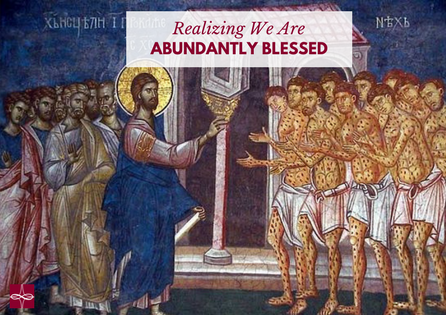

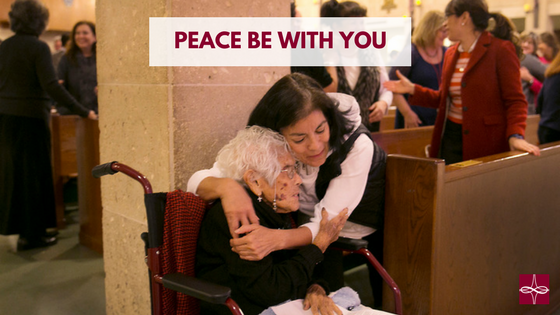

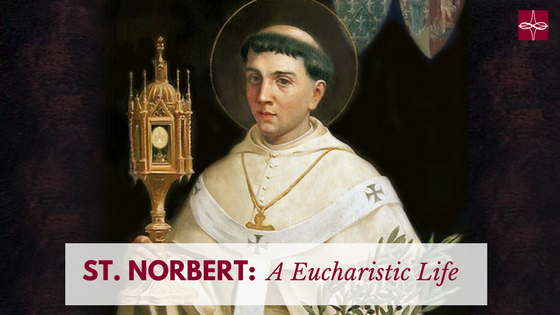

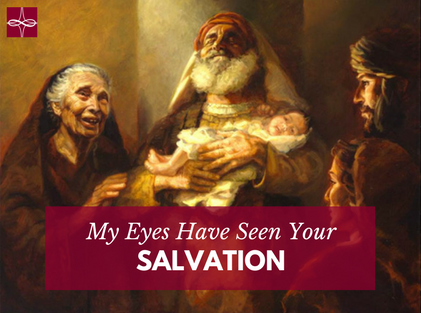

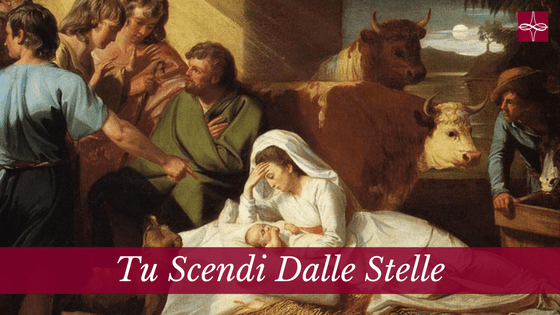
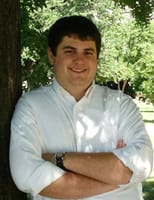
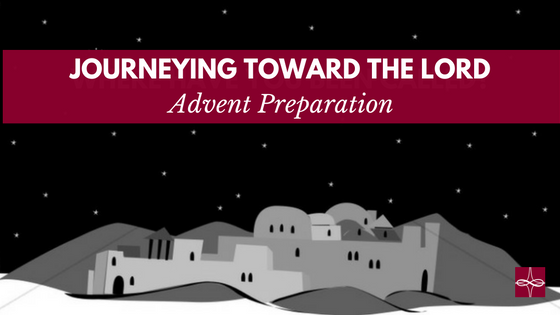
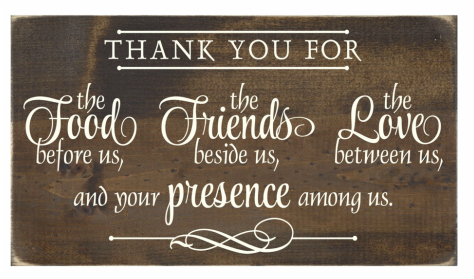

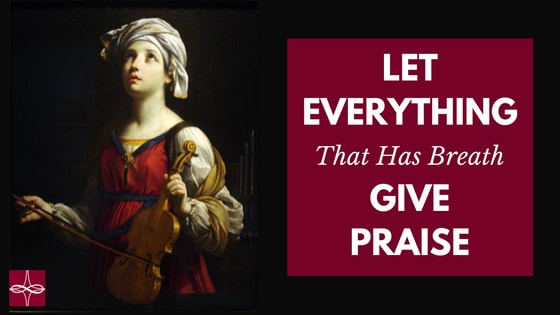

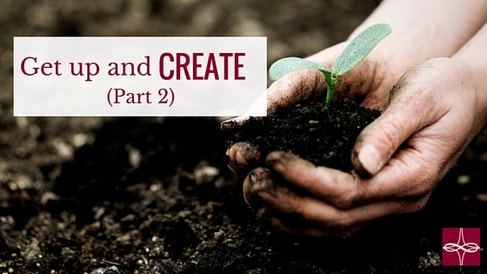

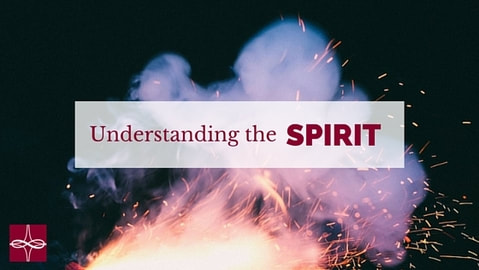

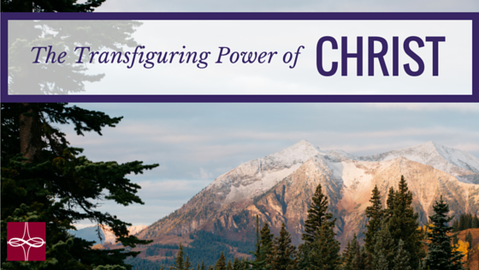
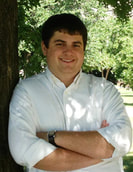
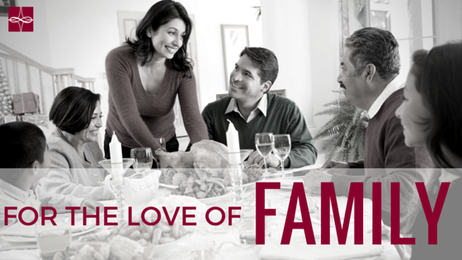

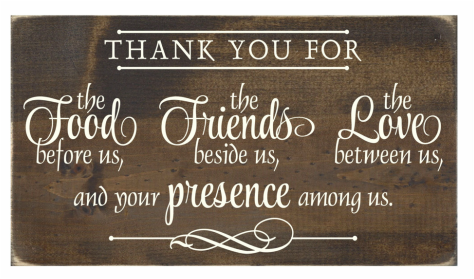

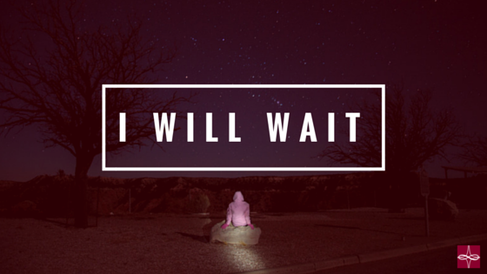



 RSS Feed
RSS Feed